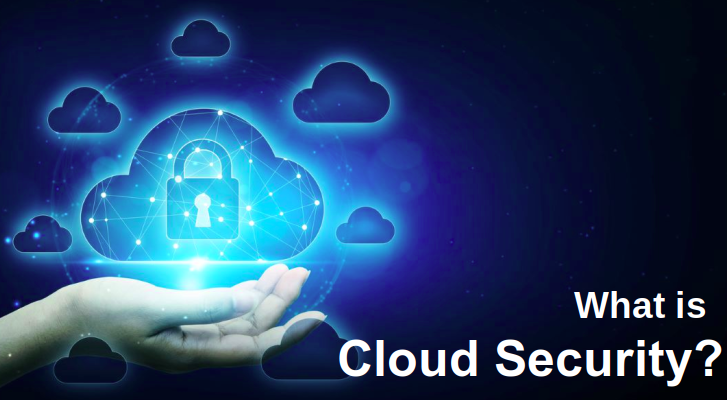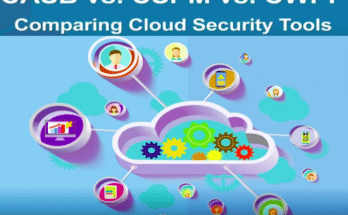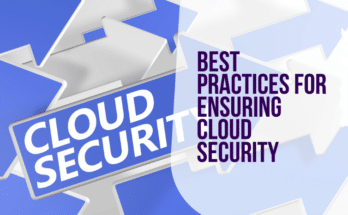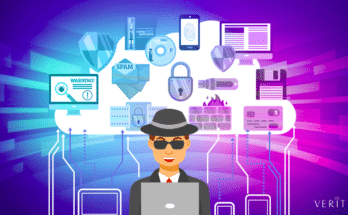Adopting cloud computing services has helped many enterprises reduce costs, accelerate deployments, and develop at a larger scale. Today many businesses use cloud services as an alternative to traditional practices.
Most businesses trust cloud services for improved flexibility, backup and recovery features, collaboration efficiency, reduced IT costs, etc. As a result, more and more businesses are moving to digital platforms. This implies the cloud will continue to play a vital role in our lives in the coming years.
As per the International Data Corporation (IDC) forecasts, spending on cloud services is estimated to reach $1.3 trillion by 2025 worldwide. The Cloud Computing market is touching new heights and has become a trusted source for many.
But remember, just because your data is in the cloud doesn’t mean it is safe and free from all threats.
The main role of cloud service providers is to provide the right software, networking, and other facilities to run the cloud and less for the security in the cloud. Yet, most cloud service providers offer standard cybersecurity tools to prevent data from cyber-attacks. But they do not provide enough coverage as per the enterprise requirement resulting in data breaches and thefts.
Since neither your enterprise nor CSP can eliminate security threats and vulnerabilities, it is essential to create a balance. Enterprises need to implement the right cloud security mechanisms and policies for business continuity.
Here, we will discuss cloud security in detail – its importance and how it works. Further, we will compare cloud data and on-premises data security.
- What is Cloud Security?
- Cloud Data Security vs On-Premises Data Security
- The Importance of Cloud Protection
- How Does Cloud Security Work?
- Acronis Cyber Protection Solution for Businesses and MSPs
What is Cloud Security?
Cloud Security also called cloud computing security is a subset of cybersecurity that includes a set of policies and methods to protect the cloud from cyberattacks. These policies further enable administrators to perform secure cloud operations.
As more and more businesses are switching to cloud services to store data over the Internet, increase productivity, and cut down costs, the risk of data breaches, data loss, or account hijacking is high.
Hence, a few sets of policies were designed and implemented to protect and ensure the privacy of data in the cloud.
As cloud service providers do not provide enough coverage with their cybersecurity tools, cloud security services attempt to fill this gap. Here are a few tools provided by CSP vendors and customers to keep your data away from threats and unauthorized access:
- The Cloud Workload Protection Platforms (CWPPs) help administrators protect applications, virtual machines, and data.
- Cloud Access Security Brokers (CASBs) act as gatekeepers or shields between cloud services and customers.
- Cloud Security Posture Management (CSPM) helps monitor cloud security and compliance issues.
- Secure Access Service Edge (SASE) unifies all security tools in one console to provide centralized orchestration and reduce complexities.
- Zero Trust Network Access (ZTNA) secures applications based on defined access control policies.
Also Read
5 Reasons Why Cloud Security Is Important For All Businesses!
Cloud Data Security vs On-Premises Data Security
Enterprises have full authority to choose an on-premises or cloud-based approach for data security. They can select a combination of both forms of data security as well. But, how to know which data security approach is better? To make it easier for you, we have compared the two forms of data security here:
In cloud-based security, all operations run on an on-premises system, and a third-party company hosts your servers. Under cloud-based security, all the data backup is stored in a private or public cloud.
Also, the data is not easily susceptible to robbers, and clouds have strengthened walls and advanced temperature gauging systems that protect data against natural disasters.
Cloud security is good for enterprises and secures data with high efficiency. Another advantage of choosing cloud-based security is you can access files from any location without worry. They keep all the data encrypted and maintain proper security.
Whereas, with on-premises security, all security measures and backup data are physically managed by the on-site data center. As all the servers and data are located in your office. A dedicated staff can configure the system as per the need and manage the infrastructure keeping data secure.
Under this approach, the security of the data is completely your responsibility.
No matter which approaches your enterprise chooses for its data security, make sure to follow the golden 3-2-1 backup rule.
Instead of having one backup copy, the rule recommends creating three copies of data, where one backup is stored in the cloud.
The rule is highly beneficial and will protect your organization from natural disasters. By adopting this golden rule, your enterprise can survive a data disaster.
The Importance of Cloud Protection
Today, most enterprises are using cloud computing services in one form or another. Especially after the pandemic crisis, the cloud computing market has been on the rise. As per records, public cloud services spending for 2020 was estimated to reach 1.17 billion. And currently, as per Gartner’s recent prediction, public cloud services spending for 2023 will reach nearly $600 billion.
So, you can see the difference for yourself in how fast the use of cloud services is growing. It is great that people are moving to clouds for better productivity, but at the same time, it includes various risks, resulting in the need for the best cloud security services.
Here are a few more reasons that state why cloud security is important:
Disaster Recovery
Loss of data in the cloud or severe damage to critical on-premise data storage facilities can also occur due to natural disasters. You can immensely get affected or face huge losses if not properly secured.
By adopting cloud security systems, enterprises can recover quickly from natural disasters that pose an existential threat. Cloud security tools support backup and recovery features that enable businesses to restore and recover with little downtime.
Protects Against Security Breaches
Maintaining data security on cloud storage systems is crucial, especially when using public cloud services. Generally, these cloud services are hosted by third-party cloud service providers. Hence, it is essential to take proper security measures.
In this case, cloud security services act as a shield and protect your sensitive data from denial of service (DDoS) attacks, hackers, and other unauthorized user access.
Helps Manage Remote Work
With the help of cloud services, users can access data from any location. This, at the same time, increases the risk and can make your data susceptible to malware and phishing. However, by adopting proper cloud security measures, businesses can maintain better data security.
Also Read
How Perimeter 81 Helps to Secure Your Cloud Infrastructure
How Does Cloud Security Work?
Cloud security provides a wide range of policies and technologies to protect and control data and applications in the cloud. When selecting the cloud service providers, make sure to consider the ones that comply or base their policies on universally accepted international security standards such as ISO 27001.
Also, check if their cloud architectures suit your workloads and management preferences. There are many factors one must consider when selecting a cloud service provider. Below we have listed a few procedures or technologies one must look for in a cloud service provider:
File Encryption
Encrypt your data with government-approved AES-256 encryption before sending it to the cloud. The encrypted data remains protected from unauthorized users and maintains privacy.
Secure Communication
All management communications must be encrypted and run only through secure channels that support SSL encryption. Thus, ensuring secure communications at all times.
Identity and Access Management (IAM)
IAM products cross-check the identity and access privileges of the users using multi-factor authentication, access control, and Single sign-on (SSO) services. They allow only authorized users to access the information and deny unauthorized users. Hence, reduce threats and prevent unauthorized users from accessing internal assets.
Regular Backups: Do not miss to check if the selected cloud provider runs regular backups as scheduled. Backup and recovery features help protect data and save from huge losses in case of natural disaster.
Acronis Cyber Protection Solution for Businesses and MSPs
Acronis Cyber Protect Cloud is a trusted platform that secures and creates a regular backup of your sensitive data with its integrated cyber protection approach. It is a unified solution that provides AI-based anti-malware, antivirus, and endpoint protection altogether in a single solution.
The platform also helps reduce complexities and maximizes efficiency. It supports backup and recovery features that ensure quick workload recovery with little downtime.
Acronis Cyber Protect Cloud secures all customer workloads and reduces the client security risks with its advanced features.
Also, with its centralized management and unique cyber protection capabilities, enterprises can securely share corporate content from any location without worrying about data leakage. This integrated method uses an advanced AI-based behavioral detection engine that prevents data from zero-day attacks and other threats.
Another feature that makes Acronis Cyber Protect Cloud a great security solution is it uses artificial intelligence and machine learning technologies to protect your on-premises systems and cloud-based data.
Further, using its built-in monitoring and reporting features, enterprises can track every cloud activity, assess system vulnerabilities and fill in security gaps.
You can find many cloud security tools in the market, but what makes Acronis Cyber Protect Cloud stand out is its anti-malware protection and comprehensive endpoint management services.
What’s Next:
Start your free 30-day trial to test Acronis Cyber Protect Cloud with Acronis expert support.




